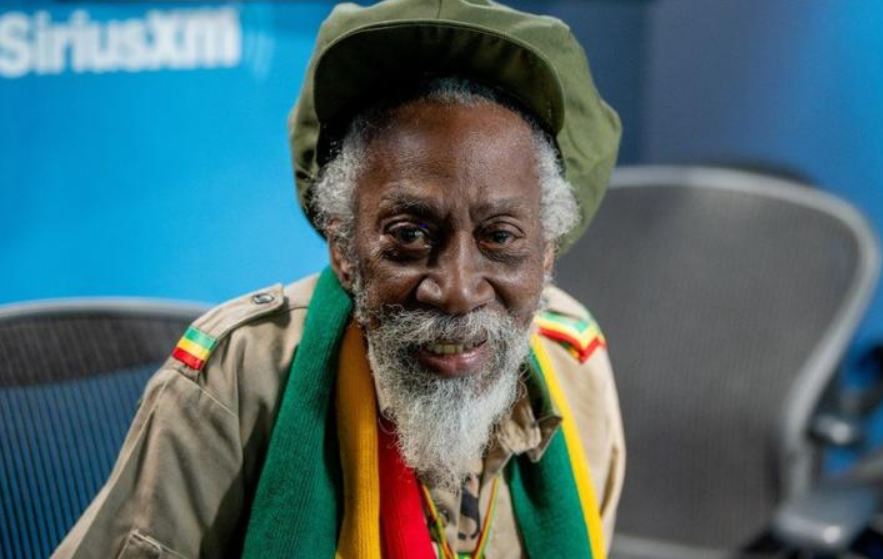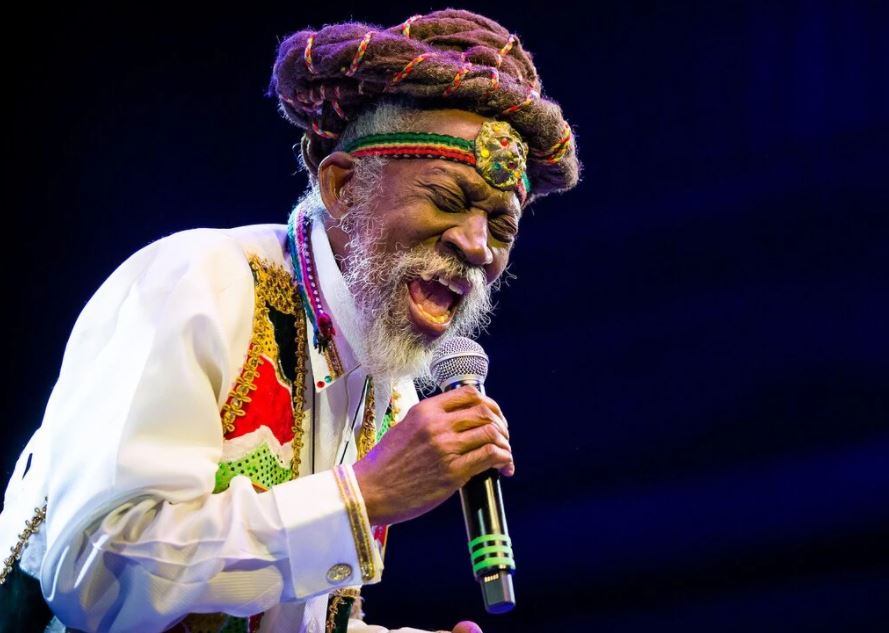
For 34 years, Neville O’Riley Livingston, better known as Bunny Wailer, lived as the repository of the history of reggae music and the band he formed alongside Bob Marley and Peter Tosh. Tosh was shot dead in an attempted robbery in 1987. This was six years after Bob died of cancer, leaving Bunny as the surviving member of the original Wailers. Now the world of reggae is wailing over Bunny, who died on Tuesday aged 73.
Revered in many forms – the keeper of reggae’s flame, guardian of the Rastafari movement – Bunny was born in 1947 in rural Jamaica. He is one of the last of a generation of reggae artistes that pioneered the genre, including Toots Hibbert of the group Toots and the Maytals, who gave the world the name reggae. Toots died last year.
Bunny was raised by a single father, who was a minister, stonemason and a baker. He came from a family of 13, and he and Bob had a relationship from a young age, even growing up in the same household. His family moved to Trenchtown as the young Bunny was in his teens, and harbouring an interest in music. There, he and Bob met Tosh, who would become the third member of the world-beating trio, the Wailers.
ALSO READ: Reggae icon Bunny Wailer, last Wailers member, dies aged 73
“We were for the people and we were always crying, wailing. That is what we sing about; the problems and miseries of the people,” he told Capital Radio in London.
The first record that the group released was Simmer Down, an up-tempo single that set them on the path to stardom.
“Everyone is here to serve a purpose, and it does not make sense to be doing something that is not serving your purpose,” Bunny said in an interview with a UK radio host David Rodigan in 1988 while speaking about his interest in music.
Central to Bunny’s purpose was his Rastafari faith, which developed later, and the socially conscious music he released. He was also the key harmony man in the Wailers.
“It was my responsibility to deal with the (music) arrangement and fix the harmonies. When I was away, you could feel that it wasn’t the original Wailers,” he said.

In the late 1960s, Bunny spent 14 months in prison on a marijuana charge. The song Battering Down Sentence was written as a protest against his conviction as he served time.
“It was false imprisonment. That is the Rastaman’s charge; even if you don’t have, you still have it because it is in your head,” he said.
But as the group became successful, Bunny became unsettled with the direction it was talking and the management they had. Bunny famously likened working with Jamaican record producer Clement Seymour ‘Sir Coxsone’ Dodd in Studio One to labouring in a slave plantation.
ALSO READ: Search still on for Bunny Wailer's wife, reggae legend offers Sh760,000 reward
“You knew you had to work, but you knew you were working for nothing because he made it obvious that he doesn’t pay,” he said.
Bunny famously looked down on singing about love, instead favouring more socially conscious messages in his songs. The Wailers catapulted to international fame with their fifth album Catch a Fire. They broke up in 1973 during a tour in England.
“In Jamaica, we were already filling stadiums with 30,000 people. We were already pulling in crowds, so to come in and play in places where you only had 100 people, I think it was humiliating, but we went along with it,” he said.
Amid growing discontent, Bunny did not join the band for the American leg of the tour. After leaving the Wailers, Bunny continued to make music, including his first solo album Blackheart Man in 1976.
He went on to win a Grammy Award for Best Reggae Album three times. Two of those albums were tributes to Bob. He was given Jamaica’s Order of Merit in 2017. Bunny liked his music untouched and unviolated, and he had a publicised disagreement with rapper Snoop Dogg, who he accused of appropriating the Rastafari movement for commercial gain.
 The Standard Group Plc is a multi-media organization with investments in media
platforms spanning newspaper print
operations, television, radio broadcasting, digital and online services. The
Standard Group is recognized as a
leading multi-media house in Kenya with a key influence in matters of national and
international interest.
The Standard Group Plc is a multi-media organization with investments in media
platforms spanning newspaper print
operations, television, radio broadcasting, digital and online services. The
Standard Group is recognized as a
leading multi-media house in Kenya with a key influence in matters of national and
international interest.
